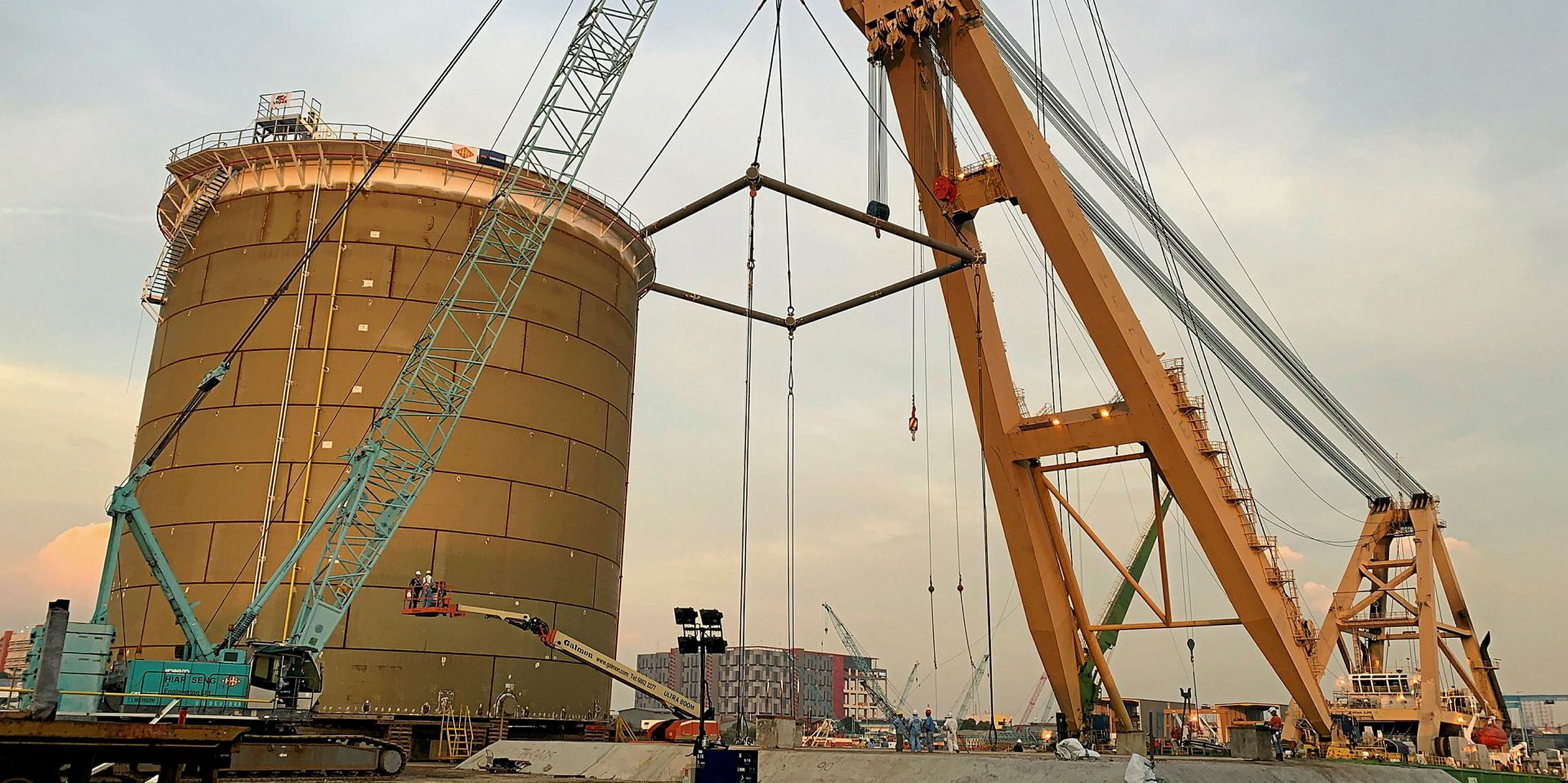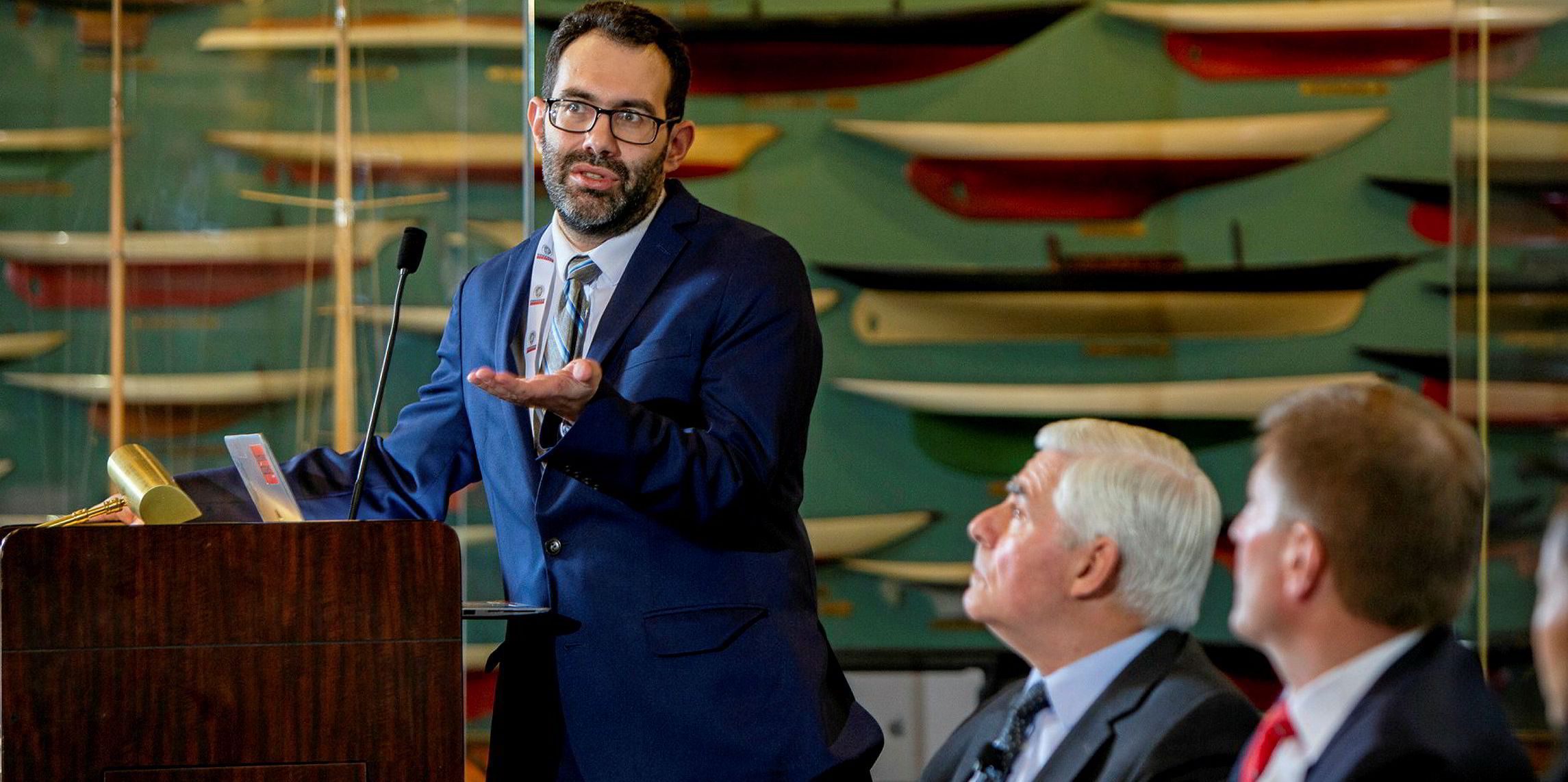Scrubber retrofit delays at Chinese shipyards amid the coronavirus outbreak may cause shipowners to fall foul of an upcoming carriage ban on non-compliant fuels, officials say.
From 1 March, the IMO will not allow ships to carry non-compliant fuel unless equipped with exhaust gas scrubbers, which lower exhaust sulphur content to the compliant 0.5% limit.
Owners in violation of the ban will be subject to fines or prosecution unless they produce a fuel-oil nonavailability report (FONAR), showing they could not obtain compliant fuel.
Setbacks on installing scrubber kits may cause vessels holding high-sulphur fuel oil to miss the deadline and unintentionally violate the ban, said Nick Makar, senior vice president of maritime administration and regulatory affairs at International Registries.
Compliance issue
"If the scrubber [is] not there, then they have non-compliant fuel," he said at last week's TradeWinds Shipowners Forum New York.
Such a vessel would technically be in violation of the regulator's carriage ban, but it will only be enforced by port states if the ship is actively trading, IMO spokeswoman Natasha Brown said.
"The control happens at flag-state level and at port-state control level, as port states can inspect ships of any flag, but a ship waiting in a yard isn’t visiting any other port state," she said. "If they trade, then they need to be compliant."
The IMO provides guidelines as to what constitutes a non-compliant vessel, but it also states that port-state-control officers should "use [their] professional judgement" in deciding whether or not to detain the ship.
"If a member state wishes to raise this issue for clarification, it can bring it to [the] IMO," Brown said.
Virus impact
The coronavirus has had an impact on the shipping industry at every turn since it was first detected in the Chinese city of Wuhan in December.
Aside from causing delays at shuttered shipyards, it has impacted rates for every sector, caused crew and passenger quarantines aboard ships and hit the cruise industry's outlook on earnings.
It has also affected the valuations of initial public offerings, crude demand and the sale-and-purchase market, among other areas.
In the words of Kristin Holth, DNB's executive vice president and global head of ocean industries, its impact has been "underestimated" by many.







